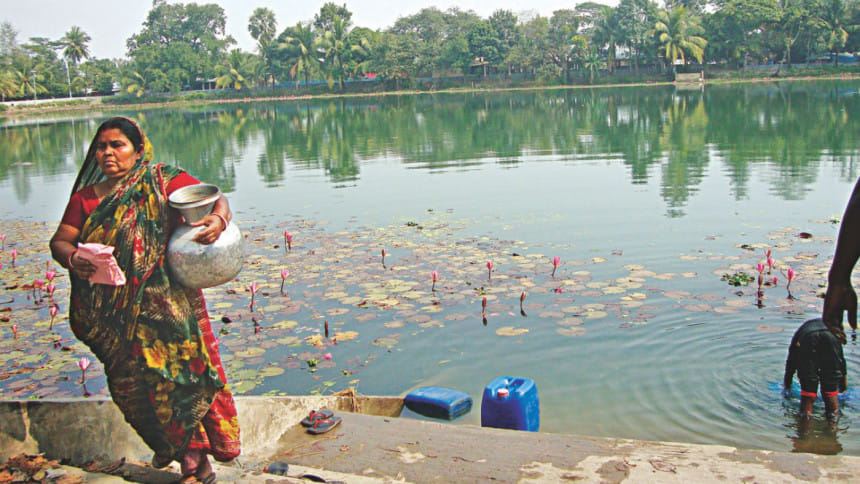Solving salinity

Water: the stuff of life. A reliable supply of fresh drinking water is one of the most fundamental requirements of any human society. In south-western Bangladesh high salinity in drinking water is a widespread and catastrophic problem that adversely affects human health.
Now, four students from the Bangladesh University of Engineering and Technology have developed a convenient way to desalinate water using solar power. It's an innovation with the potential to improve the lives of millions of people living in salinity-affected areas.
As is not uncommon among the elderly, 84-year-old Jonaki Das suffers from high blood pressure. Jonaki lives in Bagerhat's Kachua upazila: for her, an unfortunate address. Kachua is an area with high-salinity groundwater. That makes it difficult for Jonaki to regulate salt intake in her diet, which isn't good news for a hypertension sufferer.
But it's not only those with chronic medical conditions that are affected. Pushpok Das from Bagerhat's Rampal is one of many in his area who have to travel some 2.5 kilometres from his home almost every day to collect freshwater from a large pond for his eight-member family.

Increasingly, residents rely on rainwater, pond sand filters and even river water for cooking and drinking. According to an official from the department of public health engineering, more than 50,000 people in Bagerhat alone are compelled to buy 20-litre containers of freshwater on a regular basis during the dry season.
Ideally, water fit for human consumption has less than one gram of salt per litre. The World Health Organisation recommends that adults shouldn't consume more than five grams of salt per day. But according to a scientist at the Bagerhat Shrimp Research Institute, in parts of that district water contains between three and nine grams of salt per litre, depending on the season.
“Nationally, around 20 million people are affected by high salinity in their drinking water,” says Sabrina Rashid Sheonty, a student from Buet's water resources engineering department who led the team which developed the new desalination system. “It's an environmental disaster that negatively impacts the health of both adults and children, especially in low-income households of the south-western coastal belt.”
Sheonty and three of her fellow Buet students decided to work towards addressing this problem in preparing their winning entry for the 2018 Hult Prize, held at the university and sponsored by the Clinton Foundation. “In the competition we were required to submit new ideas to solve longstanding problems using renewable energy,” she says. “The freshwater crisis in south-western coastal areas came to mind.”
The result is an affordable and portable desalination device made of stainless steel, a poly-carbon sheet and small pipe. “Our device can make up to 10 litres of salt water potable at a time; but there is scope to develop larger models too,” says Sheonty.
“To buy, drinking water can cost over Tk 1 per litre,” observes Mubasshir Tahmid, another project team member from the naval architecture and marine engineering department. “Our device costs Tk 1,500, can be installed on a rooftop or in a courtyard and be used to produce drinking water for over a decade.”
“We are currently in the process of further developing the system, to represent both the university and Bangladesh at the Hult Prize regional finals to be held in Kuala Lumpur in mid-March,” says Sheonty. “We are also aiming for commercial production.”
University students Asif Hossain Tamim and Sabbir Rudro are also a part of the team.
Our Bagerhat correspondent contributed to this report.

 For all latest news, follow The Daily Star's Google News channel.
For all latest news, follow The Daily Star's Google News channel. 







Comments